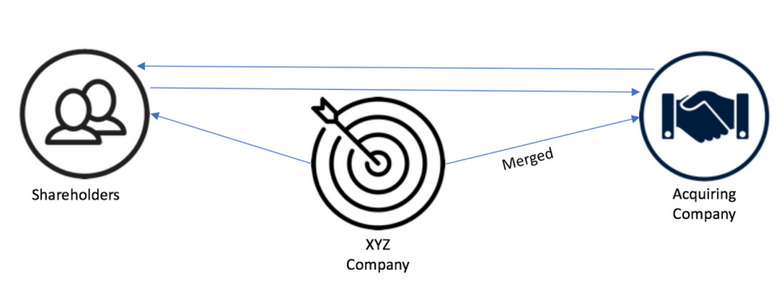Non-Taxable Merger
A non-taxable merger allows a seller to defer recognition of gains by exchanging stock in his or her company for stock in an acquiring company. A statutory merger or consolidation occurs when one company completely absorbs another by virtue of a state or federal statute. Consideration to the seller is typically in the form of stock of the acquiring company. In stock-for-stock mergers, voting stock of the acquiring company is exchanged for the stock of the Target Company and in stock-for-assets mergers, the acquiring company exchanges its voting stock for the assets of the Target Company.
VALUATION ISSUES
As in a sale of your company, a strategic buyer that can achieve synergies with your company may pay more than a financial buyer purchasing for investment purposes. In addition, an appropriate control value must be determined since it is unlikely that a strategic or financial buyer would acquire less than 50 percent of your company. It is necessary that values be determined for both companies so that equally valued securities are exchanged. Should you receive unregistered stock of your acquirer, SEC Rule 144 may restrict the future public sale of those securities. Consequently, the value of those unregistered securities may be reduced by a discount for restricted marketability.
POST TRANSACTION FINANCIAL RISK
POST TRANSACTION MANAGEMENT INVOLVEMENT
The post-transaction management structure in a non-taxable merger is critical to consider at the outset of negotiations. A merger may involve any combination of management of the merged companies. Particularly where there are duplicate layers of management in the merged company, reductions or management restructuring may be necessary.
OTHER CONSIDERATIONS
It is wise to address certain issues prior to a merger. For example, potential-operating synergies should be addressed as well as an analysis of the merging corporate cultures. A significant benefit of a merger might be that your acquirer can improve certain aspects of your company such as distribution or manufacturing capacity, financing flexibility and/or management depth. As previously noted, post-merger management control should be established.
FINANCIAL DISCLOSURE
You control the release of sensitive information on your company by pre-screening prospective buyers, all of which should be bound by a confidentiality agreement.
TAX CONSIDERATIONS OF SELLING SHAREHOLDERS
Since a non-taxable merger is not a taxable event, taxes are avoided in that the tax basis in the stock or securities received will equal the tax basis of the original stock exchanged. It is important that equally valued securities be exchanged so as not to jeopardize the tax-free status of the transaction.

